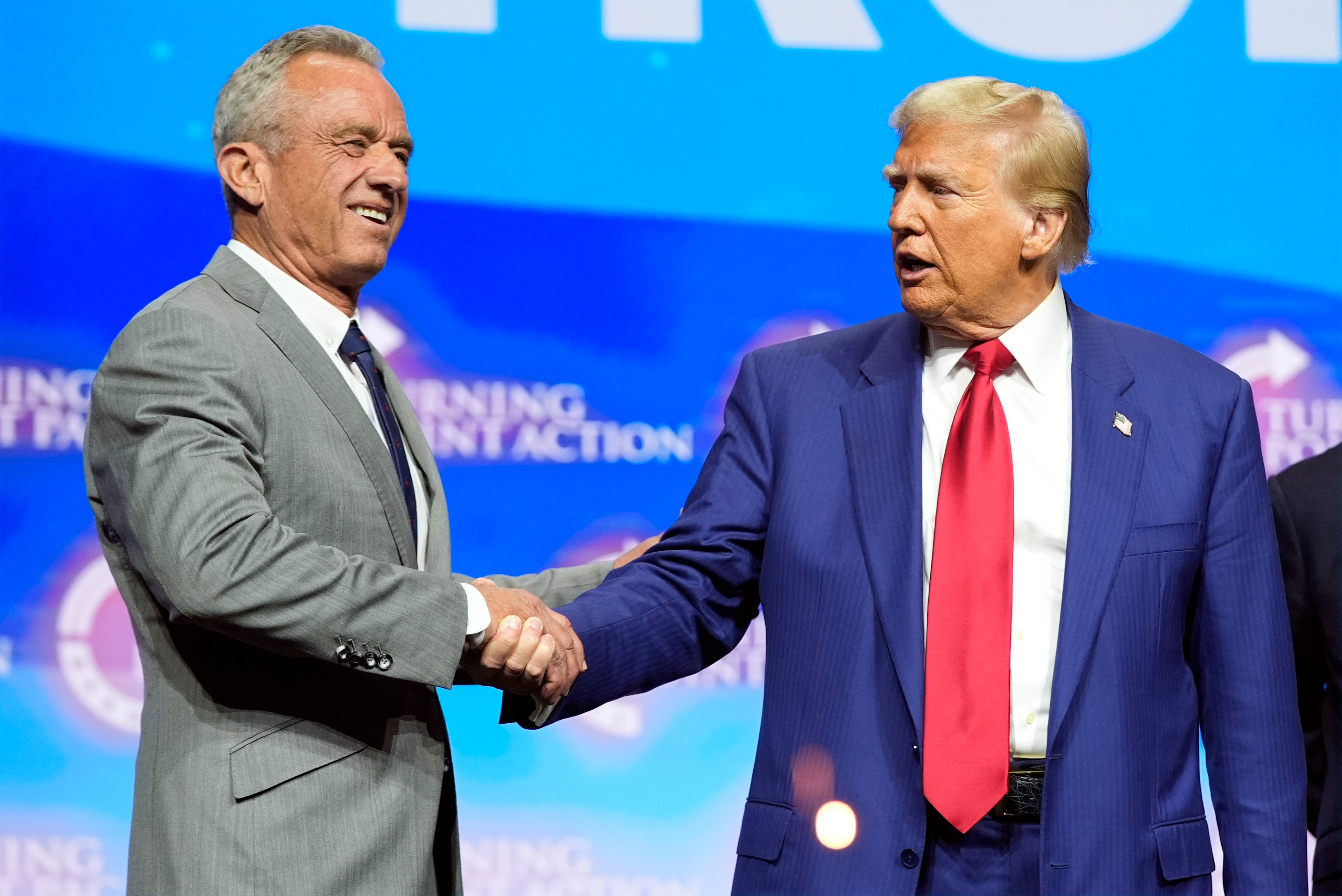
Trump and RFK Jr.'s Health Agency Overhaul Plan Sparks Mixed Response from Medical Experts
Donald Trump's potential overhaul of national health agencies, in partnership with Robert F. Kennedy Jr., has sparked significant debate in the medical community. The proposed changes could affect major institutions like the National Institutes of Health (NIH), Centers for Disease Control (CDC), and Food and Drug Administration (FDA).
Key points of the proposed changes include:
- Potential restructuring of NIH, CDC, and FDA
- Discussions about vaccine policies
- Possible modifications to public health practices
- Review of current health agency operations

Trump shaking hands at campaign event
Medical experts' responses have been mixed. While some welcome the focus on chronic disease prevention, many express concern about potential impacts on public health. Dr. Tom Frieden, former CDC director, acknowledges the positive aspects of addressing chronic diseases but warns against undermining established public health measures.
Major concerns from health experts include:
- Potential disruption to vaccine programs
- Impact on evidence-based public health practices
- Effects on agency scientific credibility
- Possible interference with established health protocols
Implementation challenges would include:
- Limited executive authority over career scientists
- State and local agency autonomy
- Legal restrictions on changing scientific-based decisions
- Existing civil service protections
Current trends show declining vaccination rates and rising preventable diseases, highlighting the significance of these potential policy changes. While some view the proposed changes as an opportunity to reform healthcare systems, others warn of risks to public health progress.
Related Articles

Trump's WHO Withdrawal Plan Sparks Global Health Funding Concerns

